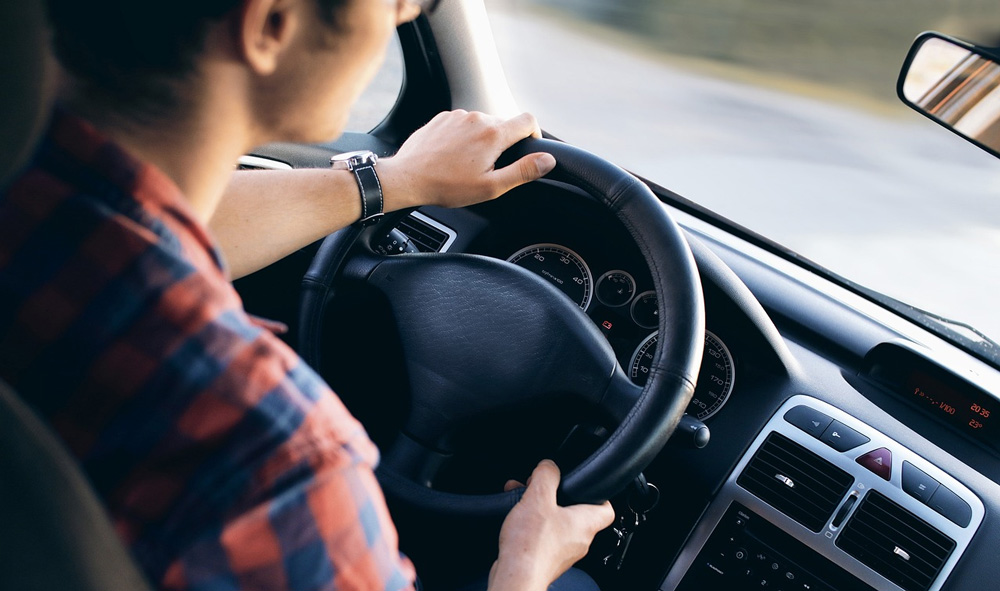4 minute read
As a new driver, there could be many situations you encounter on the road that you have not thought about and are therefore unprepared for. So, be prepared! Start by remembering the 10 following situations.
1. Driving at Night
Night driving often presents a challenge for new drivers.
Dim visibility can make it more difficult to judge distances or notice pedestrians crossing the road. In some rural roads, the road may be pitch black! Therefore, you should keep your windshield clean, use low-beam headlights when there are oncoming vehicles, and reduce speed to add extra layers of safety.
2. Harsh Weather Conditions
Driving during inclement weather such as snow or heavy rain is tough even for seasoned drivers. Not only is visibility poor, but oftentimes, you can’t hear vehicles that are passing from behind until the very last second.
If you are caught in such situations, it is essential that you remain calm and confident behind the wheel. Learn how to control your vehicle effectively by braking slowly and avoiding sharp turns that can lead to skidding. Also, be sure to check your rearview and side mirrors before changing lanes!
3. Unexpected Car Problems
There are likely to be times when your car will break down unexpectedly due to issues like tire punctures or engine problems.
Therefore, it is wise to familiarize yourself with basic troubleshooting techniques like changing a flat tire or checking oil levels.
4. Navigating Traffic Jams
As a new driver, prepare yourself to handle heavy traffic congestion, which can often be stressful.
This situation not only requires patience but also an understanding of how to maneuver your vehicle without colliding with adjacent cars.
Remember to maintain safe distances and use turn signals properly for changing lanes.
5. Driving Through Roundabouts
Roundabouts can be quite overwhelming for a new driver because of their multiple exits and incoming traffic flows.
Always remember to yield to drivers already in the roundabout. Only proceed when it is safe, and signal when exiting.
6. Sharing the Road with Large Trucks
Sharing the road with large trucks can be intimidating due to their size and less visibility at certain angles.
So, make sure to provide them enough space, do not cut across them abruptly, and stay visible by avoiding their blind spots.
7. Parking Challenges
Getting a car into a tight parking spot is another aspect that often tests a new driver’s skills. Try looking for parking lots with wide roads and low traffic volumes to practice in. You’ll build your parking confidence in no time!
8. Navigating Unfamiliar Territory
You may find yourself driving places you are not familiar with. Whether it’s a road trip gone wrong or you make a wrong turn going to work, it’s important to relax. It is vital that you prepare for this in advance by using navigation tools like the GPS system on your phone. In the unfortunate event your phone fails on you, then look for main roads, as you’ll most likely find somewhere you can ask for directions, such as a gas station.
9. Running Out of Gas
Perhaps you underestimated the amount needed for your trip or perhaps you simply forgot to check your fuel gauge. If you have ever experienced the unfortunate event where you ran out of gas while driving, you would know the immense inconvenience it causes.
As a new driver, ensure you always keep an eye on your car’s fuel meter and make it a habit to refill once it goes below quarter capacity.
Additionally, carry emergency fuel, if possible, for unforeseen circumstances or know the location of nearby gas stations when embarking on long trips.
10. Handling Road Rage
Unfortunately, road rage has become an increasingly common scenario on the roads today.
It is crucial that you stay calm and composed, no matter how defensive or aggressive the other driver might be. Do not engage in any confrontations and try to get yourself out of potential conflicts safely. Nowadays, dashcams are essential to collect any evidence of harm conducted by another motorist.
Final Thoughts
By preparing for the above situations in advance and practicing good defensive driving habits, you will become a more confident and seasoned driver. In turn, you will ensure your safety and others.





